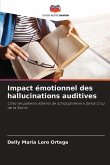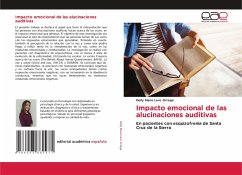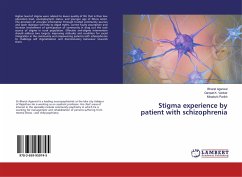The present work highlights the role that the interpretation that people with auditory hallucinations have about the voices, in the emotional impact that they generate. The aim of this research was to relate the type of interpretation that people had of their voices with the emotional responses they generated. Also taking into account the perception of the relationship with the voice and how this could influence both the interpretation of the voice and the emotional and behavioral responses. The research was conducted with patients with a diagnosis of schizophrenia, with at least 2 years of evolution of the disease. Using the scales: The Beliefs About Voices Questionnaire (BAVQ), Voice and you (VAY-23) and DAIMON. It was concluded that malevolent voices were associated with negative emotional responses and a rejection towards the voice, omnipotent voices had some negative emotional responses, with an increase in behavioral obedience, while benevolent voices did not show negative emotional responses.
Bitte wählen Sie Ihr Anliegen aus.
Rechnungen
Retourenschein anfordern
Bestellstatus
Storno









